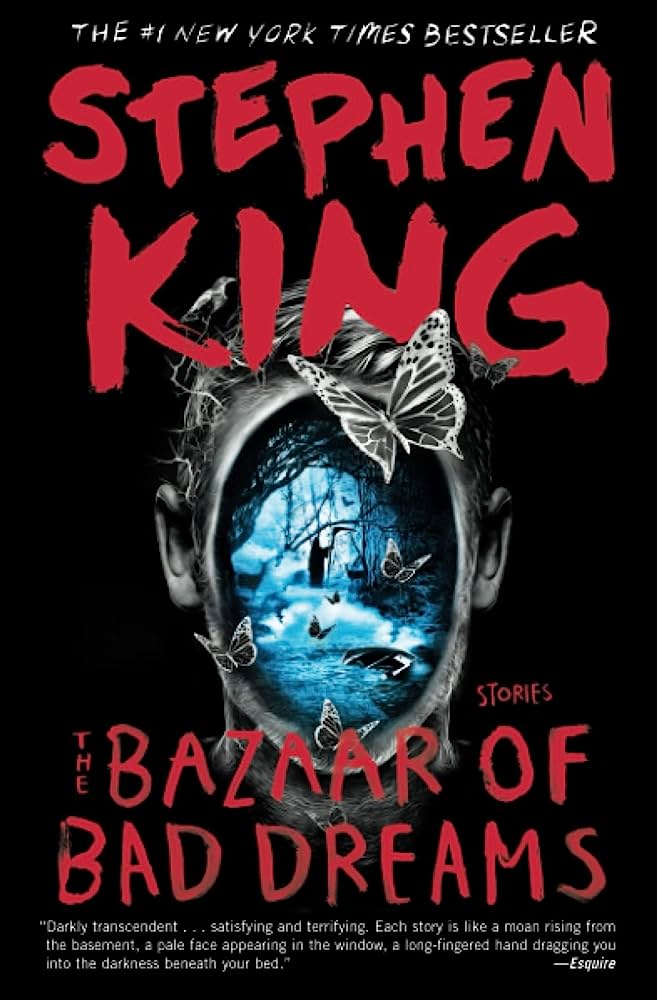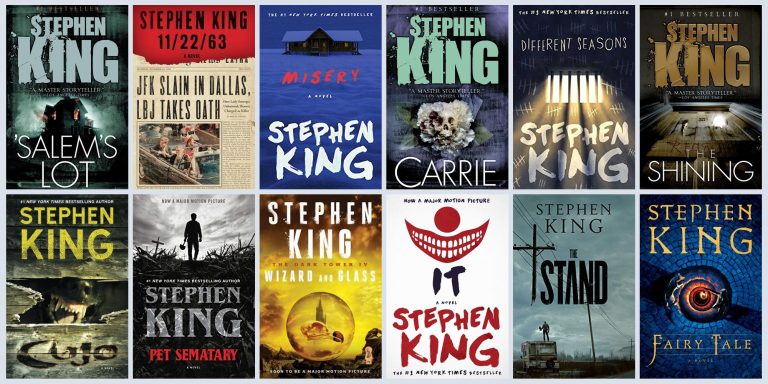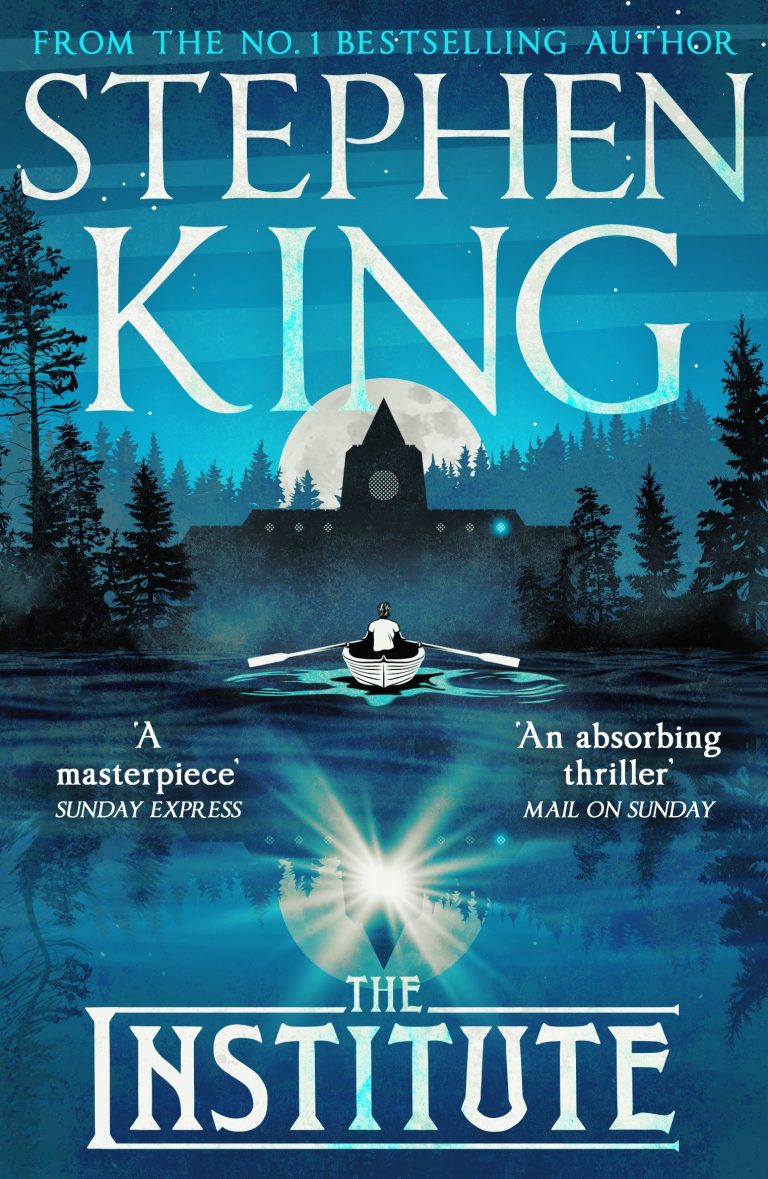Are There Any Stephen King Books With A Science Fiction Theme?
If you’re a fan of Stephen King’s bone-chilling novels and you’ve been craving some science fiction in his signature style, you might be wondering, “Are there any Stephen King books with a science fiction theme?” Well, my friend, you’re in luck! Stephen King may be known for his mastery of horror, but he has delved into the realm of science fiction as well. In this article, we’ll explore some of King’s works that combine the best of both genres, giving you an electrifying dose of suspense and mind-bending futuristic concepts.
When it comes to weaving a tale that keeps readers on the edge of their seats, Stephen King has proven time and time again that he’s a master of the craft. Known for his vivid imagination and ability to create characters that feel real, King has dabbled in science fiction in several of his novels. From stories set in post-apocalyptic worlds to tales featuring otherworldly beings, King’s forays into science fiction add an extra layer of intrigue to his already captivating storytelling. So, get ready to embark on a thrilling journey through the intersection of horror and science fiction in the brilliant mind of Stephen King.

Are There Any Stephen King Books with a Science Fiction Theme?
Stephen King is renowned for his mastery of the horror genre, but he has also dabbled in other genres throughout his prolific writing career. While he is primarily known for his horror novels, King has also written books that incorporate elements of science fiction. In this article, we will explore the Stephen King books that delve into the realm of science fiction and discuss how he weaves this genre into his storytelling.
The Science Fiction Side of Stephen King
Stephen King’s foray into science fiction may not be as extensive as his contributions to the horror genre, but he has still produced several notable works that incorporate elements of science fiction. These novels showcase King’s versatility as a writer and highlight his ability to seamlessly blend different genres together.
One of the most well-known Stephen King books with a science fiction theme is “The Tommyknockers.” Published in 1987, this novel tells the story of a small town in Maine that becomes enthralled by a mysterious object buried in the woods. As the townspeople uncover the object, they begin to exhibit strange and dangerous powers. “The Tommyknockers” explores themes of alien invasion and the corrupting nature of power, offering a unique blend of science fiction and horror.
Other Stephen King Books with Science Fiction Elements
In addition to “The Tommyknockers,” Stephen King has explored science fiction themes in several other novels. “Under the Dome,” published in 2009, centers around a small town that becomes inexplicably trapped under an impenetrable dome. As the townspeople struggle to survive, they must confront the mysteries surrounding the dome and the sinister forces at play.
Another notable example is “11/22/63,” published in 2011. While primarily a time travel novel, it also incorporates elements of science fiction as the protagonist attempts to prevent the assassination of President John F. Kennedy. The novel explores the consequences of altering the past and the ethical dilemmas that arise from tampering with history.
The Blend of Horror and Science Fiction
One of the reasons Stephen King’s books with science fiction themes are so compelling is his ability to seamlessly blend horror and science fiction together. He creates tension and suspense by combining the unknown and the supernatural with elements of technology and scientific exploration. This fusion of genres adds depth and complexity to his storytelling, captivating readers and keeping them on the edge of their seats.
The incorporation of science fiction elements also allows King to explore thought-provoking themes and concepts. He delves into the human psyche, examining the consequences of scientific advancements and the moral implications of unchecked power. This blend of horror and science fiction creates a unique reading experience that is both thrilling and intellectually stimulating.
In conclusion, while Stephen King may be best known for his contributions to the horror genre, he has also ventured into the realm of science fiction. Books like “The Tommyknockers,” “Under the Dome,” and “11/22/63” showcase King’s ability to seamlessly blend genres and create captivating narratives that keep readers engaged. These novels offer a fresh perspective on science fiction, incorporating elements of horror and exploring thought-provoking themes. So, if you’re a fan of Stephen King and interested in exploring the intersection of horror and science fiction, these books are definitely worth a read.
Key Takeaways: Are there any Stephen King books with a science fiction theme?
- While Stephen King is primarily known for his horror novels, he has also explored science fiction themes in some of his works.
- One example is “The Tommyknockers,” a novel about a small town that becomes obsessed with a mysterious alien object.
- “11/22/63” is another book by King that blends science fiction with historical fiction, as the protagonist travels back in time to prevent the assassination of JFK.
- King’s “The Dark Tower” series also incorporates elements of science fiction, as it follows a gunslinger on a quest through different dimensions.
- It’s important to note that while these books have science fiction elements, they still retain King’s signature style of storytelling and often delve into other genres as well.
Frequently Asked Questions
Are there any Stephen King books with a science fiction theme?
1. Are there any Stephen King books that combine horror and science fiction?
Yes, Stephen King has written several books that blend elements of horror and science fiction. One notable example is “The Tommyknockers,” published in 1987. In this novel, a small town in Maine becomes the site of strange occurrences after a buried spacecraft is discovered. The story explores themes of alien technology, mind control, and the destructive power of obsession. “The Tommyknockers” is a gripping blend of science fiction and horror that showcases King’s ability to create a sense of unease and terror.
Another book that combines horror and science fiction is “Dreamcatcher,” published in 2001. This novel follows a group of friends who develop psychic powers after encountering an alien entity. As they struggle to understand and control their abilities, they also face a deadly threat from an extraterrestrial invasion. “Dreamcatcher” is a thrilling mix of supernatural horror and science fiction, showcasing King’s talent for crafting complex characters and building suspenseful narratives.
2. Does Stephen King have any dystopian science fiction novels?
While Stephen King is primarily known for his horror fiction, he has also delved into the realm of dystopian science fiction. One notable example is “The Stand,” published in 1978. Set in a post-apocalyptic world devastated by a superflu virus, the novel follows a group of survivors as they navigate the challenges of rebuilding society and facing off against a malevolent figure known as Randall Flagg. “The Stand” explores themes of good versus evil, the resilience of the human spirit, and the consequences of societal collapse.
Another dystopian science fiction novel by Stephen King is “Under the Dome,” published in 2009. In this story, a small town in Maine is suddenly sealed off from the outside world by an invisible dome. As the trapped residents struggle to survive and unravel the mystery of the dome’s origin, they also grapple with issues of power, corruption, and the fragility of civilization. “Under the Dome” is a gripping exploration of human nature and the consequences of unchecked authority.
3. Are there any Stephen King books with time travel elements?
Yes, Stephen King has incorporated time travel elements into some of his novels. One notable example is “11/22/63,” published in 2011. The story revolves around a man named Jake Epping who discovers a portal that allows him to travel back in time. He decides to use this opportunity to prevent the assassination of John F. Kennedy. As Jake delves deeper into the past, he faces unexpected challenges and consequences. “11/22/63” is a captivating blend of historical fiction, time travel, and suspense, showcasing King’s ability to weave intricate narratives.
Another book that features time travel is “The Dark Tower: The Gunslinger,” the first installment in King’s epic “Dark Tower” series. The Gunslinger, the series’ protagonist, traverses a post-apocalyptic landscape in search of the enigmatic Dark Tower. Along his journey, he encounters various time distortions and alternate realities, adding a unique sci-fi element to the story. “The Gunslinger” sets the stage for an expansive and genre-blending tale that combines elements of fantasy, western, and science fiction.
4. Are there any Stephen King books set in outer space?
While Stephen King’s works primarily take place on Earth, he has written a few stories set in outer space. One example is the novella “The Jaunt,” published in 1981. In this chilling tale, humanity has developed a teleportation technology called “the Jaunt,” which allows instantaneous travel across vast distances. However, there is a catch – anyone who is not properly sedated during the teleportation process suffers unspeakable horrors. “The Jaunt” is a thought-provoking exploration of the consequences of advanced technology and the fragility of the human mind.
Another book that ventures into space is “The Tommyknockers,” mentioned earlier. Although the majority of the story takes place on Earth, the discovery of an alien spacecraft and the subsequent events have a significant impact on the characters’ lives and the world around them. While not entirely set in outer space, “The Tommyknockers” explores themes of extraterrestrial life and the mysteries of the cosmos.
5. Are there any Stephen King books that involve advanced technology?
Yes, Stephen King often incorporates advanced technology into his stories, adding a sci-fi element to his narratives. One example is “The Institute,” published in 2019. The novel follows the experiences of children with psychic abilities who are held captive in a secret facility known as the Institute. The Institute utilizes advanced technology to monitor and control the children’s powers, raising ethical questions about the use of technology and the abuse of power.
Another book that delves into advanced technology is “Cell,” published in 2006. In this story, a mysterious pulse transmitted through cell phones turns people into mindless, violent creatures. The protagonist, Clay Riddell, must navigate a world overrun by these “phoners” and uncover the origins of the pulse. “Cell” explores the dark side of technology and its potential to disrupt society in terrifying ways.
Stephen King Books for Fantasy & Sci-Fi Fans
Final Summary: Stephen King and the World of Science Fiction
So, if you’re a fan of Stephen King and you’ve been wondering if he has any books with a science fiction theme, the answer is a resounding yes! While King is primarily known for his horror and supernatural stories, he has also dabbled in the realm of science fiction, blending his unique style with futuristic elements. From time travel to alternate dimensions, King’s foray into science fiction offers a thrilling and captivating reading experience.
One notable example is “The Tommyknockers,” a novel that explores the discovery of an alien spacecraft buried in a small town. The story delves into the consequences of exposure to extraterrestrial technology and the resulting transformations and chaos that ensue. Another intriguing science fiction work by King is “11/22/63,” which combines time travel with historical events as the protagonist attempts to prevent the assassination of President John F. Kennedy.
So, if you’re craving some sci-fi mixed with King’s signature suspense and storytelling prowess, be sure to check out these captivating novels. With their fusion of science fiction and King’s masterful writing, they are sure to transport you to worlds both familiar and otherworldly.






